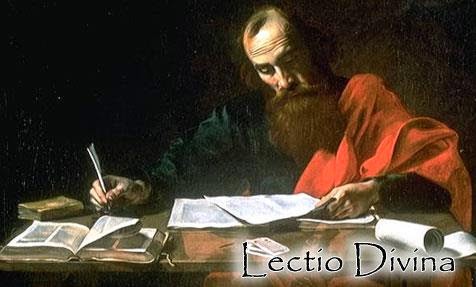There is a practice in the Benedictine monastic circles called "Lectio Divina." The point of this practice is to read God's Word (The Bible) and let it speak to you as the Living Word. What can happen is that the Scriptures can become relevant to you in a way you never imagined and you can receive an interpretation or explanation from the Holy Spirit that no one has gotten before!
I believe in Lectio Divina. While I revere the Holy Fathers who wrote the Four Gospels, Acts, and Epistles. I believe the same God, who is the Same revealer of all Truth and wisdom back then is revealing things to his people today! The radical truth is that St. Peter and St. Paul are no different from any follower of Christ today. I know, I may have just have alienated or ruffed feathers, but hear me out before offense takes root. What makes St. Peter and Paul special is their proximity to Incarnate Christ. Peter walked with Jesus in the flesh, while Paul had vision and expanded the Church all the way to Rome. But the same Holy Spirit that dwells in them dwells in us and subsequently can teach us and reveal the deep mysteries that baffle those who reject the Spirit.
I believe the canonized Bible is God breathed and has 99% of the answers regarding the Christian walk. However I believe 1% is reserved for the Jesus and The Holy Spirit to reveal to us the answers to the 99%! We have a direct link to the divine and can with His help devise the answers to questions that have baffled theologians and confused Christians throughout the centuries. To do this, we must study God Word (The Bible) and let the Lord's Spirit reveal as we reveal the spiritual realities and revelations hidden in parables and in even simple and straight forward words.
I was saddened the other day when I saw someone who was so intent to meet a priest and be taught. I wanted to say as St. Peter did, "But you are a chosen people, a royal priesthood, a holy nation, and God's special possession." (1 Peter 2:9). The concept that we need these special priests who go to Bible college and are ordained comes from the Levite priests of the Old Testament! Every Christian is a royal priest because the High Priest of Melchizedek dwells inside us (1 Corinthians 6:19, Romans 8:9) and His name is Jesus Christ! (Hebrews 7:17)
For Jesus was speaking about us when he said to His Disciples on Resurrection Day, "Yes, you believe because you see me, but more blessed are those who believe without seeing." (John 20:29). There is a blessing upon us followers of Christ who believe without seeing. And yet, the Lord is kind and will reveal much to those who are his disciples of this day and time.
Lectio Divina divides into four practices. Firstly there is "Lectio" which means read. Then "Meditatio" which means meditate on the reading. Then "Oratio" which means pray or speak the Word. Then finally "Contemplatio" which means contemplate the Word. Reading the Word of God can fall into deep study where like scholar you look up scriptures in Lexicons, or it can mean to read it simply and let it soak in your soul. meditating on the Word of God is the process of letting the words be "written on your heart and mind," (Hebrews 8:10, Hebrews 10:16). Praying the word of God can be powerful, for the enemy could not prevail against Jesus in Wilderness when He would say, "It is written.." (Luke 4). Additionally, praying the word or orating/reading aloud the word has an effect that just reading silently does not. For hearing learners it helps to read aloud, but the Word of God is powerful and to speak it is to invite the Lord's presence. Finally, contemplating can range from one word to a short sentence or paragraph. It is when something catches your attention, moves you, and you find your thoughts drawing back to that verse and those words.
I encourage every follower of Christ to read the Bible daily and let the Lord through Lectio Divna reveal to you something that will build your spiritual life, open your eyes, and even be a word to share with others. The Word of God is alive! It speaks because it comes from the Lord (Genesis 1:1 and John 1:1).


Comments
Post a Comment